“It’s like cutting off a lifeline.”
Cyndie Anderson
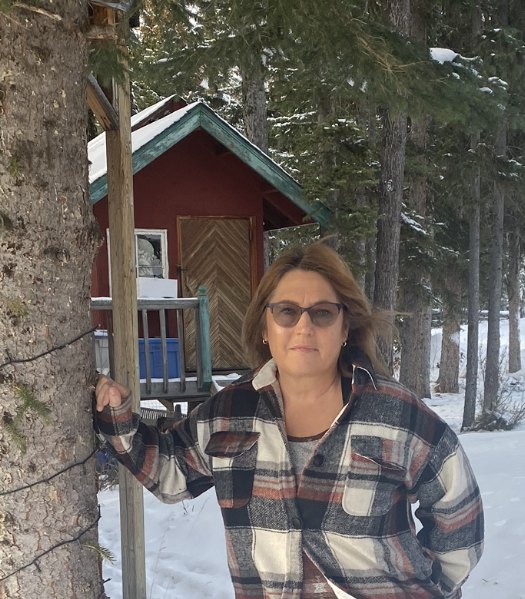
Cyndie Anderson lives with her husband and elderly mother in Lac La Hache, a small Central Interior community stretched along the aspen-lined lakeside and the Cariboo Highway. Before moving to the Cariboo, Cyndie was raised as a country kid in the Lower Mainland where she rode horses and swam in her family’s pool. Her belief that “everyone should know the stories about where you live” led her to study history and anthropology at the University of the Fraser Valley.
She and her husband raised their children in a home on a hill in Mission. “My husband and I joked that if there was ever any major disaster, at least we’re on the top of the hill,” says Cyndie. “Which probably isn’t funny now.” There she worked as a teacher for students with disabilities, a school administrator, and served as president for the Mission Association for Community Living board of directors.
In 2018, Cyndie’s dad passed away, leaving her mom on her own. “It’s not easy to be alone in the Cariboo.” In January 2021, Cyndie and her husband moved to her lakefront house in the Interior. They kept their family home in Mission, renting out the upper portion and keeping the basement suite for themselves to make visiting their adult children easier.
“We moved knowing we could go back and forth,” says Cyndie. “Five-hour drive, not a big deal, right?” Every summer of her childhood, and even some winters, she’d travelled the Canyon Highway. “My dad would quiz us on the names of the tunnels and Cariboo Gold rush history,” says Cyndie. Between visiting her granddad in Horse Lake and pulling a trailer full of horses to a Little Britches Rodeo, Cyndie was “no stranger to the Fraser Canyon.”
At the time the atmospheric rivers hit British Columbia, Cyndie, and her husband were in Mission. When the rain started falling hard, the couple decided to cut their trip short and head back to the Cariboo the next morning.
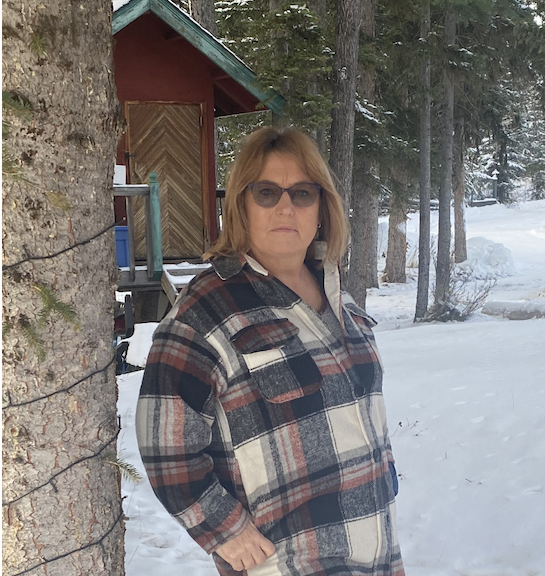
Cyndie Anderson and her husband were stranded in Mission, Canada during the 2021 Southern British Columbia floods. (CDP Photo/Cyndie Anderson)
My husband always gets up before anybody. He said, “There’s been a major disaster. Flooding on the canyon. The roads are blocked.” He’s looking to see what our options are. We couldn’t get over to Abbotsford because Highway 11 had swelled up. Highway 1 was flooded. Sumas Prairie was filled back up to be a lake. East of Mission was a landslide. Coquihalla was closed. Then I heard that people were stranded all night out on Highway 7 because there was a landslide. Living in Mission, there are how many ways to get out? And none of them were open. It’s as if we were on this little island.
We were immediately calling our children. “Are you guys okay? Are you home? Where are you at?” Our daughter was the first to contact us. She and her partner were ok. I recommended that she get the necessities and fill up their gas tank. Our son, wife and their newborn were also okay. All were home safe but there was flooding all around them. I knew they would be okay but as a parent you still worry, even if they are adults.
The worry and the stress about my mom was big. She was seventy-eight. She’s by herself up in Lac la Hache. It was winter. We heat the place with a wood stove. Her bringing wood in from the shed. She’s capable. It’s just the worry that she’s doing it by herself. Is she okay going to town? Because of COVID, I was doing the shopping. I didn’t want her to be around people. The responsibilities that were left on her. To look after five cats and two dogs. The ‘what ifs’ get in your brain.
We went to Superstore to grab some groceries because I didn’t know how long we were going to be there. It was really busy. People were rushing and racing to get stuff. The toilet paper panic happened again. People were very close to each other. I found they forgot COVID ever existed. It’s the next tragedy on top of the one that we were having.
I thought we’d be there for a week. I thought things would open up. Peter kept checking different routes. Maybe we’ll go Highway 3. Maybe we can get out through 99. Then the slide happened. A couple of people were killed. So we’re waiting. I needed to get home to work. We were there for two weeks. It was a significant loss of income for my husband and I to lose weeks of work.
Roads eventually opened up. We drove through Whistler. It was a ten hour drive that would normally take us five. There was snow in the mountains. The rivers were rushing. You’re on this two-lane highway weaving through. When we went through the more worrisome areas, we had quiet. Turned the music off. I was looking at the mountains and worrying they were going to fall on us.
It was such a sense of relief once we ended up on Highway 97. There you’re above it all. Away from any of the danger areas. I cried a bit at that point because I knew we were able to get home.
We got home around ten o’clock at night. My mother gave us a hug. Had food for us. I had to get to bed because I was getting up to go to work the next day. The students were really happy to see me. I got a big cheer when I came in.
Some kids didn’t really understand what was going on. Two days before we were home, I got a report that one of the kids’ was upset. Pulled off papers I had on the board behind my desk and had erased my schedule.
I asked the student when I got back to school about it and was told, “ “Well, I thought you weren’t coming back.” And I said “Why did you think that?” “Well, I watched the news and I saw a house floating down the river,” the student said. “I thought you were going to be floating down the river.”
With the whole class, we talked about the highway and the destruction and natural disasters as part of our curriculum: all these different things and how it affected them. They’re worried about food. The shelves were empty because the highways were closed. They didn’t quite understand why things couldn’t get here.
I went into more about it. We asked: “What did the Fraser Canyon look like before there were roads?” and, “What was it like living around these places at the time?” It changed my focus for social studies to talk more about cultures, communities, and families and how people support each other in times of natural disaster.
We were stuck up here. It was worse than we thought. There was no way to get to the Lower Mainland through the Coquihalla or the Canyon Highway. It’s like cutting off a lifeline. We didn’t want to risk driving through Whistler because that’s a pretty dangerous route. When we moved up , we promised our children, “We’ve got our house here, we’re going to be back often.” You worry about snow and road conditions but not complete wipeouts. To be stranded here was emotionally difficult for everyone. We were hoping and praying we would be able to get there for my granddaughter’s first Christmas. The highway wasn’t opened until late January.
Covid was already disruptive, now it had been two years that we haven’t been with the kids for Christmas dinner. So what happens with the third one? I think family traditions get altered and changed and affected by this. By distance and not being able to be together.
My life’s changed now because of everything. We sold our house in Mission. We weren’t going down as often as the roads were still being fixed and I worried about travelling. I’m glad I live where I live. You double check and think, “Am I good where I am?” Is there something above us on the mountain that could take us out? We’re still feeling the effects of it. I think we’re gonna still feel some in a while. We don’t know what they are yet.
When we eventually drove to the Lower Mainland we saw the damage. you see the power of the river. You see half a mountainside has gone. You see part of a bridge or a road that’s damaged, and know so many people’s lives were destroyed. You don’t know how something could be so powerful until you see the devastation of it all.
It’s caused me to think about relationships and not waiting. The confidence you have of “Oh, it’ll be there” is different. You don’t wait to do the thing. You don’t worry about other things when that stuff happens. You go, “Why am I so uptight about this when in one night, things can change?”
This testimony was originally published in the Fraser Valley Current, on January 10, 2023.
Related Stories
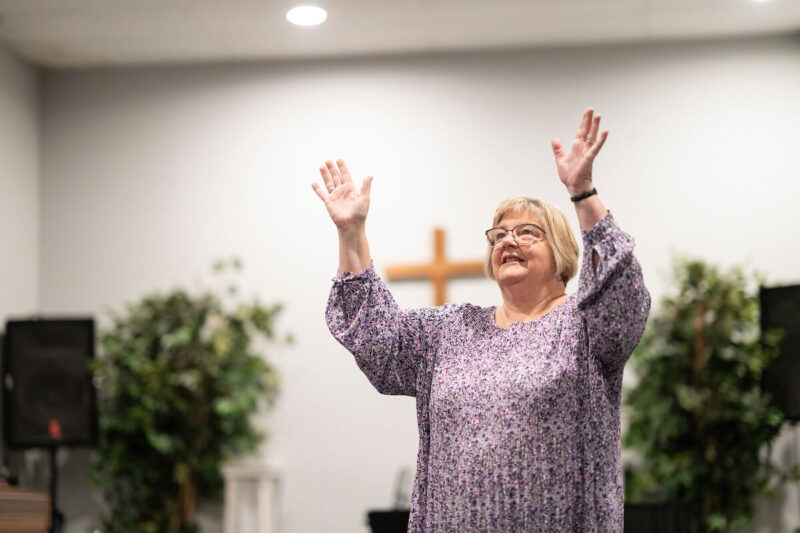
Wanda Turner, Chilliwack, Canada
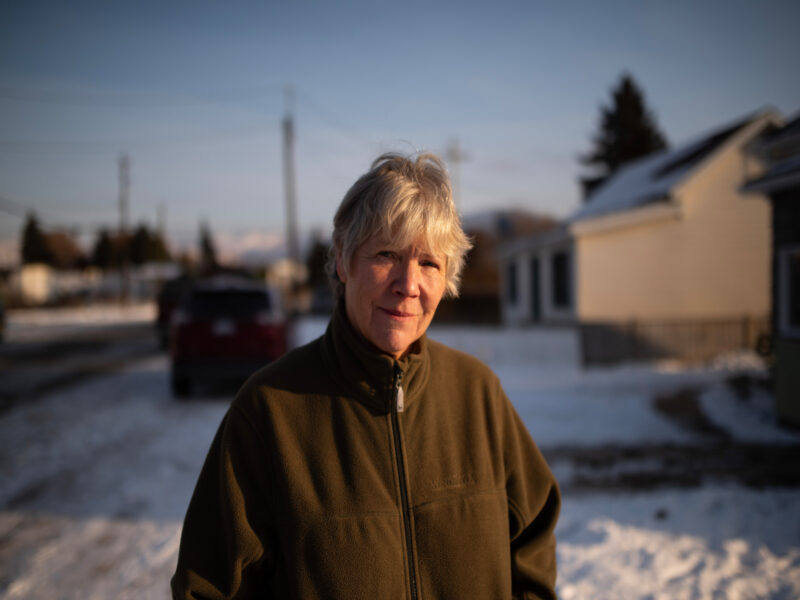
Donna Rae, Merritt, Canada
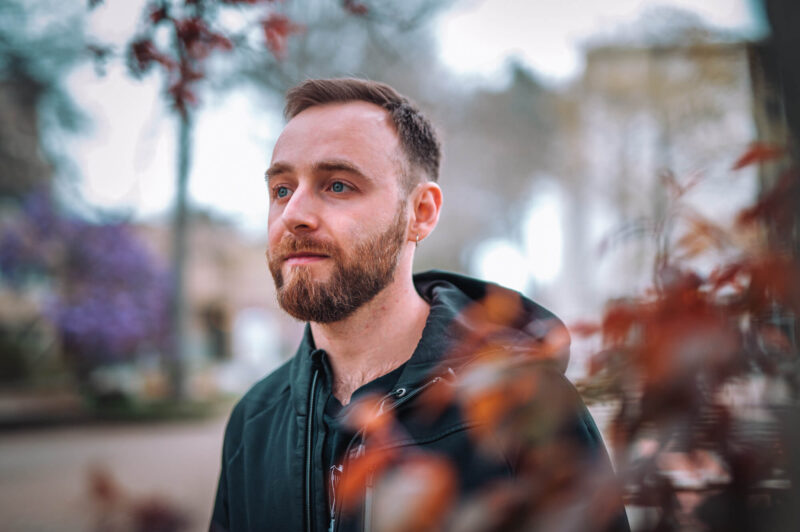
Jordan Kovacs, Otres, Cambodia